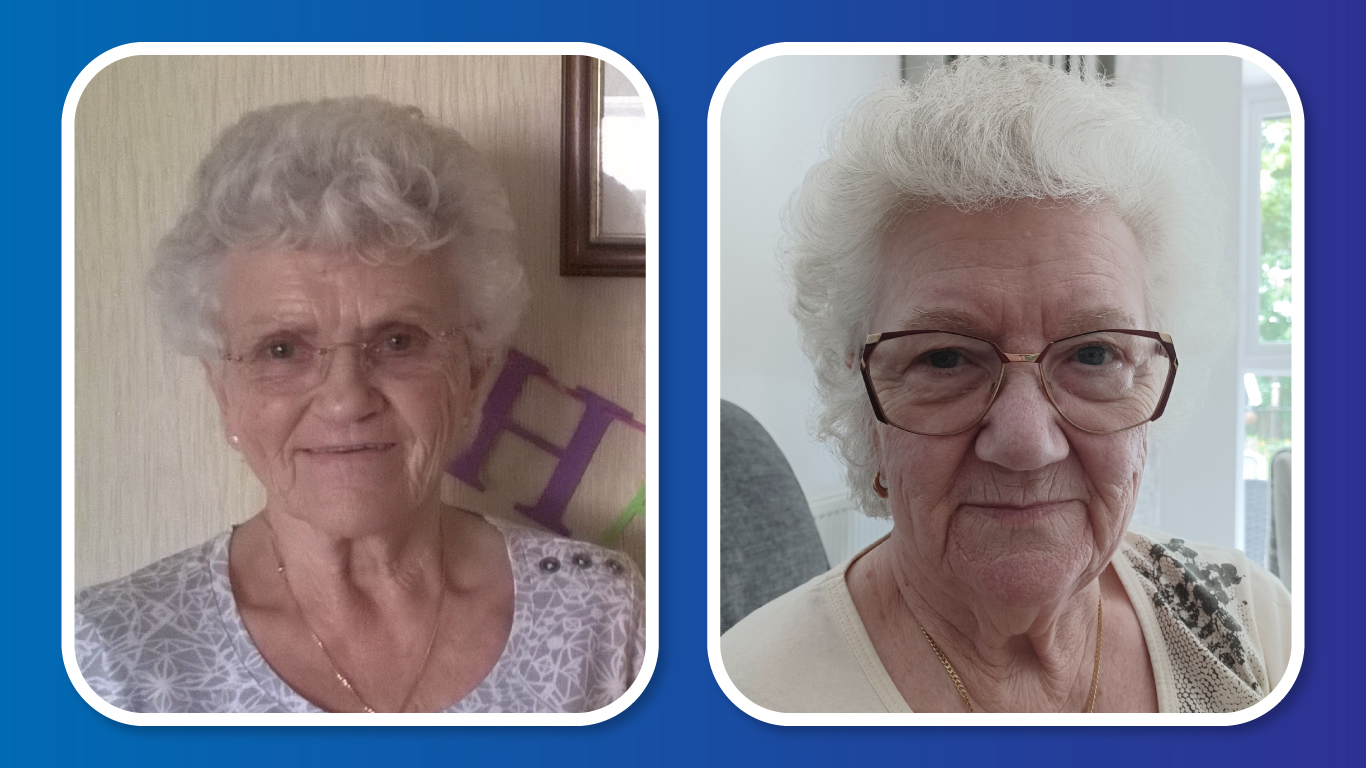Breast cancer patients who have taken part in a study in Walsall have highlighted the importance of research, this International Clinical Trials Day.
The Mammographic surveillance in breast cancer patients aged 50 years or older (MAMMO-50) study was set up to assess the potential benefits of decreasing the frequency of mammograms in those aged 50 and over. It opened in 2015 and Walsall Healthcare NHS Trust Research Nurse Lisa Richardson has been its Principal Investigator.
The study closed to recruitment in 2018 and 77 patients took part in total.
Val Haden and Connie Morgan are among those who agreed to take part.
Great grandmother Val, 84, said: “I was happy to help Lisa with this study as someone who tries not to let cancer, or the worry of cancer, take over my life.
“Age is just a number to me and I don’t let anything get in the way of me living my life. But I appreciate that the information collected from those of us taking part in this will be used to help others in the future and that’s a good thing to do in my eyes.”
Val, a former League of Friends volunteer at Walsall Manor Hospital, added: “As part of the study I’ve been asked to share how I feel and the effect that breast cancer has had on me. I love talking to people and know that it’s helpful to hear other people’s experiences so this is another good reason to take part.”
Connie Morgan, aged 85, said: “I hope that what I’ve done in this study can help other people and that they can benefit from it.
“Things are moving on all the time when it comes to how we treat cancer and other conditions and it’s nice to think that I can give something back. Research is important as what we can do today can help someone in the future.”
Breast surgery (mastectomy or conservation) does not affect long term survival. Three years after diagnosis, second breast cancers are found less frequently by mammography alone in patients who have had surgery. Early detection of second cancers or metastasis is more likely to occur via patient self-examination between mammograms than by a specialist clinic visit. A patient’s ability to self-check and report concerns could be improved by alternative follow-up routes including questionnaires and/or contact with nurses, GPs, radiographers or internet access. There have been no randomised controlled trials in this setting which is why MAMMO-50 is so important.
Walsall’s patients have been followed up yearly since the study opened and many of those who have taken part have said they also embraced the opportunity to speak with healthcare staff outside of their usual appointments and treatment.
Research Nurse Lisa added: “Our Trust is so grateful to the patients like Valerie and Connie who agreed to take part in the study. Their contribution will help other women in the future and their feedback has been really valuable to us.
“On International Clinical Trials Day we want to highlight the importance of research but also thank all of our patients – and colleagues – who make it possible.”

